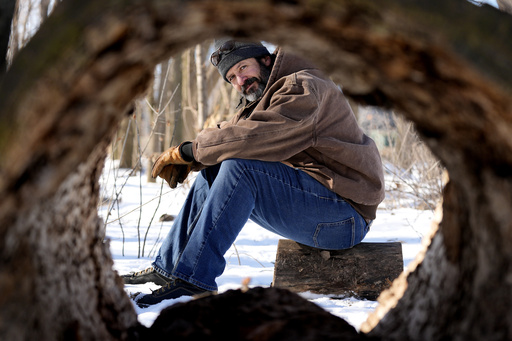NEW YORK — Positions such as park ranger, nuclear submarine engineer, and sled dog musher may sound far-fetched, yet they reflect the peculiar realities faced by a number of federal employees now in search of new employment. Following significant layoffs resulting from the cost-reduction measures introduced by President Donald Trump’s administration, many former federal workers are finding it challenging to identify suitable job opportunities outside government roles.
Eric Anderson, 48, from Chicago, was dismissed from his position as a biological science technician at Indiana Dunes National Park on February 14. He points out that his specialized skills, particularly in vegetation sampling and prescribed fire management, leave him with limited job prospects. “With a master’s degree and extensive experience in urban forestry and wildfire deployments, my professional qualifications felt like they vanished overnight after receiving that termination email,” he expresses.
With uncertainty clouding his future, Anderson contemplates the possibility of being reinstated, but he already feels the strain of his unemployment, both physically and mentally, even experiencing dental issues from stress. He likens the new administration’s approach to restructuring as reckless, describing it as akin to “tossing a hand grenade and seeing what will happen.”
The wave of federal layoffs is linked to initiatives from the Department of Government Efficiency, overseen by entrepreneur Elon Musk, who is inspecting various agencies to eliminate supposed inefficiencies. While no comprehensive figures have been disclosed regarding the total number of layoffs, reports indicate that the affected individuals stretch into the thousands across the U.S. Notably, over 80% of the federal government’s 2.4 million civilian workforce operates outside the D.C. area.
Cathy Nguyen, 51, from Honolulu, lost her job at USAID, where she worked on the PEPFAR program dedicated to alleviating the HIV/AIDS crisis. The abrupt end of her employment has brought significant life changes, forcing her to navigate new health insurance, delay retirement savings, and rethink her children’s educational plans. “This career move has compelled me to reevaluate how I wish to utilize my professional abilities moving forward,” Nguyen reflects, pondering the impact of losing a role integral to a program credited with saving around 26 million lives worldwide.
In another case, Mitch Flanigan, 40, from Alaska, was let go from his role at Denali National Park, where he was immersed in the unique world of sled dog mushing surrounded by picturesque landscapes. Although he earned modest pay, the experience was invigorating. He is actively contesting his dismissal with the U.S. Merit Systems Protection Board. “I’m eager to reclaim my lost role, which may have lacked financial abundance but was incredibly enjoyable and unique,” Flanigan shares.
Reports analyzing federal salaries reveal a disparity where federal pay is about 25% lower than that of private sector jobs. A Congressional Budget Office analysis indicates that for those with high school diplomas, federal employees out-earn their private-sector peers by 17%. However, for those with higher levels of education—like bachelor’s degrees—federal wages can be 10% less, and individuals with advanced degrees may earn 29% less than counterparts in the private sector.
Many individuals attracted to federal roles were lured by job stability, comprehensive benefits, and the opportunity to engage in work that is often unavailable elsewhere. Now, a range of professionals, from diplomats to health workers, find themselves in competitive job markets chasing new opportunities.
Gracie Lynne, a 32-year-old fellow at the Consumer Financial Protection Bureau based in Eugene, Oregon, had taken a pay cut to pursue her role, stemming from a personal dedication to financial regulation influenced by her family’s dire economic circumstances during the Great Recession. Having previously written her master’s thesis on the CFPB, she viewed the job as a “once-in-a-lifetime opportunity.” Now pregnant and facing unemployment, she worries about the challenges of finding work while preparing to be a mother. Regardless, Lynne expresses a renewed commitment to public service: “I want to continue contributing positively after my experience here.”
Meanwhile, Luke Tobin, 24, a forestry technician with the U.S. Forest Service in Idaho, finds Musk’s waste claims amusing given the persistent understaffing and tight budgets he has observed in his job. Earning about $19 an hour, Tobin was furloughed for significant parts of the year but embraced the opportunity to connect with nature. As he strategically seeks another job, he has submitted numerous applications across various sectors. Regrettably, he has only received feedback on two minimum-wage positions, correlating to positions as an Amazon driver and a fried chicken restaurant cook. “I need to secure a job—any job—at this point,” he states, expressing a sense of urgency amid ongoing economic uncertainty.


